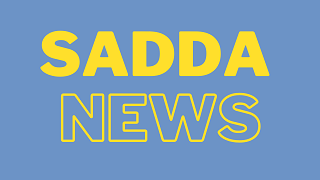What is Heart Attack?
Your heart muscle needs oxygen to survive. When the blood supply that oxygenates the heart muscle drastically drops or ceases totally, a heart attack occurs. Shrine, a build-up of fat, cholesterol, and other impurities, results in the narrowing of the coronary highways that supply the heart muscle with blood flow. This gradual process is known as atherosclerosis. When a cardiac highway is broken by the shrine, a blood clot forms around it. This blood clot may prevent blood from reaching the heart muscle through the artery. Ischemia, a condition, limits the flow of oxygen-carrying blood to a particular location of the body. Cardiac ischemia is a condition in which the heart muscle receives less oxygen and blood. A heart attack, also known as a myocardial infarction, happens when ischemia causes harm or death to some of the heart muscle (MI).
SYMPTOMS OF HEART ATTACK
Heart attack symptoms can vary. Mild symptoms are present in some people. Others display serious symptoms. Some individuals show no symptoms.
Typical heart attack signs include:
- Chest discomfort that may be felt as pressure, stiffness, soreness, hurting, or discomfort spreading to the upper belly, shoulder, arm, back, neck, jaw, and Teeth
- Fatigue
- Acid reflux or indigestion
- Unexpected dizziness or light headedness
- Nausea
- Breathing difficulty
CAUSES OF HEART ATTACK

According to Dr. Madhuri Nagori, “heart attacks were more common among the elderly because to the concomitant health issues that added to the atrocities. Among other things, diabetes and hypertension were common risk factors.
Heart disorders have discovered a method to affect the younger population as well, straying from their usual pattern of primarily affecting the elderly and those with pre-existing heart ailments.
For the rising incidence of heart attacks in the younger population, several variables once again may be to blame.
- Bad diet
- Smoking
- Diabetes
- Absence of exercise
- Elevated blood pressure
- High levels of cholesterol
- Substance abuse or drinking too much booze
PREVENTIVE TIPS FOR HEART ATTACK

Quit Smoking
Quit smoking if you do. Encourage ones who smokes to give it up. It is more challenging to recover from a heart attack, a stroke, or having chronic heart disease. Choose to halt.
Select Healthy Eating
A balanced diet is one of your finest weapons in the fight against cardiovascular disease. Nutrient-rich foods, which contain vitamins,
minerals, fibre, and other nutrients but fewer calories, should be preferred to nutrient-poor ones.
High Cholesterol levels
Having fat clogged up in your arteries is a recipe for catastrophe. It might eventually cause a heart attack or stroke. Get exercising and cut back on your consumption of saturated, trans, and cholesterol. Medication might be the answer if diet and exercise don’t reduce such numbers.

Daily physical activity is Advisable
Exercise regularly each day. Maintaining a healthy weight, lowering blood pressure, and lowering cholesterol can all be aided by doing at least 150 minutes of moderate-intensity exercise each week. And yes, anything IS preferable to nothing. If you’re currently inactive, Start slowly.
Controlling Diabetes
At least 68% of patients with DM who are over 65 years old pass away from HD, and 16% die from strokes. The risk of cardiovascular disease for someone with diabetes can be significantly increased by additional risk factors such high blood pressure, high cholesterol, smoking, obesity, and a lack of physical activity.
Restrict your alcohol consumption
Overindulging in alcohol can raise your risk of developing heart disease, cardiomyopathy, a stroke, cancer, and other diseases. It may result in rapid heartbeat and high triglyceride levels. Drinking excessively contributes to obesity, alcoholism, suicide, and accidents.
Related Article “10 Simple Ways To Boost Your Metabolism To Maintain A Healthy Life”

